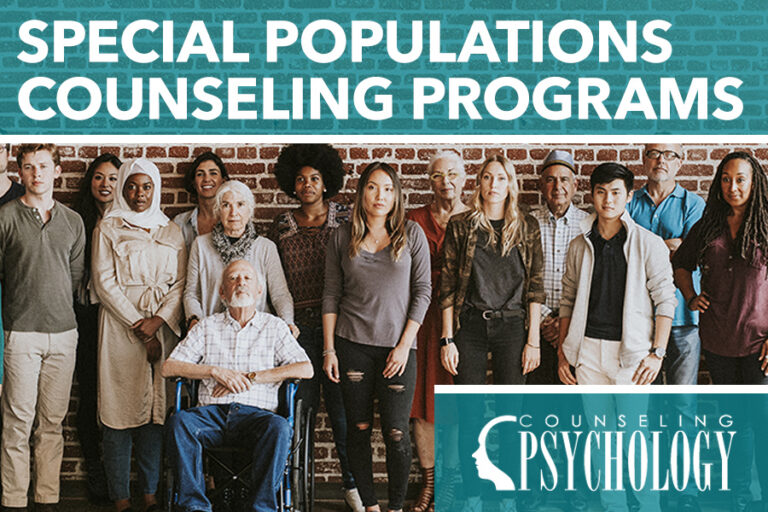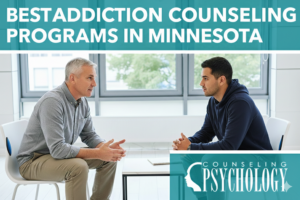Special Populations Counseling Programs: Education Pathways for Specialized Mental Health Care

Special populations counseling focuses on providing mental health services to groups with unique needs, challenges, or circumstances that require specialized knowledge and interventions. As mental health awareness grows, so does the demand for counselors equipped to serve diverse communities with cultural competence and targeted expertise. This article explores the educational pathways available for mental health professionals seeking to specialize in working with special populations.
Types of Special Populations in Counseling
Special populations in counseling encompass a wide range of groups with specific needs:
- Children and Adolescents: Young people facing developmental challenges, trauma, or mental health conditions
- Older Adults: Seniors dealing with age-related transitions, grief, cognitive decline, or isolation
- LGBTQ+ Communities: Individuals navigating identity, discrimination, coming out, or transition-related concerns
- Veterans and Military Personnel: Service members coping with PTSD, reintegration, or military-specific traumas
- Substance Use Disorders: People struggling with addiction and recovery
- Culturally Diverse Groups: Individuals from various ethnic, religious, or cultural backgrounds
- Persons with Disabilities: Those with physical, cognitive, or developmental challenges
- Trauma Survivors: Individuals healing from abuse, violence, disasters, or other traumatic experiences
- Incarcerated Populations: People in correctional facilities facing unique mental health challenges
Specialized Counseling Degree Programs
Master’s Degrees with Special Populations Focus
Many universities offer master’s programs in counseling with specializations or concentrations in special populations work:
- MA/MS in Clinical Mental Health Counseling: Programs like those at Adler University and Walden University offer concentrations in trauma counseling, addiction counseling, or military psychology.
- MA in School Counseling (with Special Populations Focus): The University of Texas at San Antonio and University of North Carolina at Chapel Hill offer specialized coursework in counseling diverse student populations.
- MA in Addiction Counseling: Schools like Hazelden Betty Ford Graduate School of Addiction Studies and the University of Minnesota offer specialized degrees focusing on substance use disorders.
Doctoral Programs
For those seeking the highest level of education in special populations counseling:
- PsyD in Clinical Psychology with Specialization: Schools like William James College offer concentrations in military psychology, Latino mental health, or LGBTQ+ affirmative psychology.
- PhD in Counseling Psychology with Multicultural Focus: The University of Maryland and University of Missouri offer specialized training in multicultural counseling and research.
Curriculum Components in Special Populations Programs
Effective special populations counseling programs typically include:
Core Coursework
- Foundational counseling theories and techniques
- Human development across the lifespan
- Assessment and diagnosis
- Research methods and program evaluation
- Ethical and legal issues in counseling
Specialized Population-Specific Content
- Cultural competence and multicultural counseling
- Population-specific assessment tools
- Evidence-based interventions for specific groups
- Advocacy and social justice
- Family systems within cultural contexts
Clinical Training
- Supervised practicum experiences with specific populations
- Specialized internship placements
- Case consultations focused on population-specific challenges
- Interdisciplinary collaboration training
Accreditation and Licensure Considerations
When selecting a special populations counseling program, consider:
- CACREP Accreditation: The Council for Accreditation of Counseling and Related Educational Programs (CACREP) ensures programs meet rigorous standards for counselor preparation.
- State Licensure Requirements: Different states may have specific requirements for counselors working with certain populations, particularly in areas like addiction or school counseling. Learn more about counseling licensure.
- Specialized Certifications: Organizations like the National Board for Certified Counselors offer specialized certifications that may enhance employability with specific populations.
Career Opportunities in Special Populations Counseling
Graduates of special populations counseling programs find diverse career paths:
- Community Mental Health Centers: Providing specialized services to underserved populations
- Healthcare Settings: Working in integrated care teams to address specific population needs
- Educational Institutions: Supporting diverse student populations from K-12 through higher education
- Government Agencies: Working with veterans, military personnel, or incarcerated individuals
- Non-profit Organizations: Serving particular communities or addressing specific mental health concerns
- Private Practice: Developing specialized services for particular population groups
Trends and Future Directions in Special Populations Counseling Education
The field of special populations counseling continues to evolve with:
- Increased Focus on Telehealth: Programs like Capella University’s and Palo Alto University’s offer specialized training in providing telehealth services to diverse populations.
- Integration of Neuroscience: Universities like Drexel and Harvard increasingly incorporate neuroscience perspectives in understanding trauma and resilience across different populations.
- Social Justice Emphasis: Programs at Boston College and University of San Francisco explicitly integrate advocacy and social justice within their special populations counseling curricula.
- Interdisciplinary Approaches: Growing collaboration between counseling, social work, medicine, and public health to address complex population needs.
Choosing the Right Special Populations Counseling Program
When selecting a program, prospective students should consider:
- Population Interest: Which specific populations are you most passionate about serving?
- Program Focus: Does the program offer substantial coursework and clinical experiences with your population of interest?
- Faculty Expertise: Do faculty members have research and clinical experience with your targeted population?
- Clinical Opportunities: Are there practicum and internship sites serving your population of interest?
- Licensure Alignment: Will the program prepare you for any specialized certifications or licenses needed?
Working with Diverse Populations
Special populations counseling programs provide vital training for mental health professionals committed to serving diverse communities with unique needs. Whether through specialized graduate degrees, certificates, or continuing education, these educational pathways help counselors develop the cultural competence, specialized knowledge, and intervention skills necessary to effectively support vulnerable and underserved populations. As mental health needs continue to evolve across society, the importance of specialized training in working with diverse populations will only increase.



